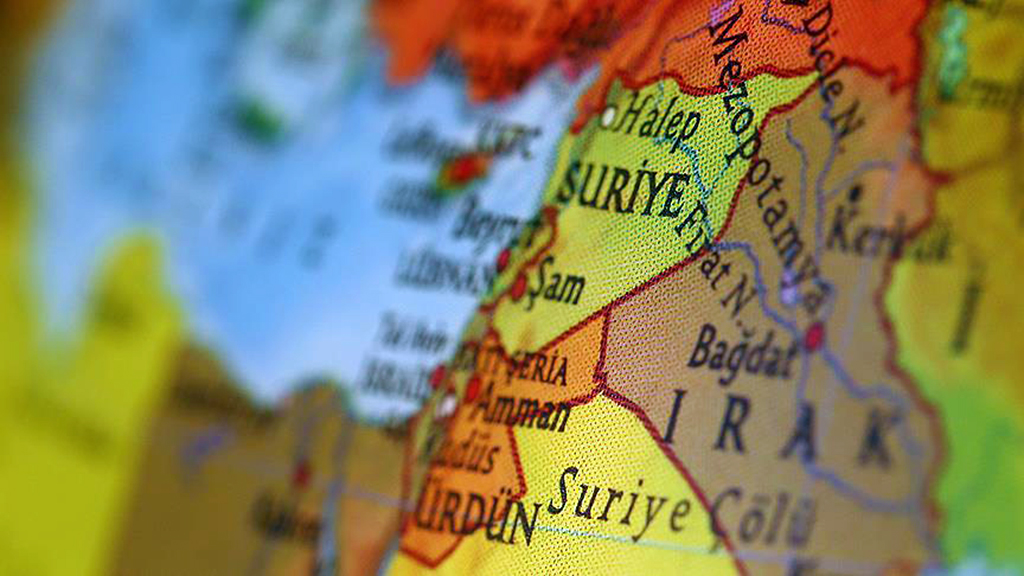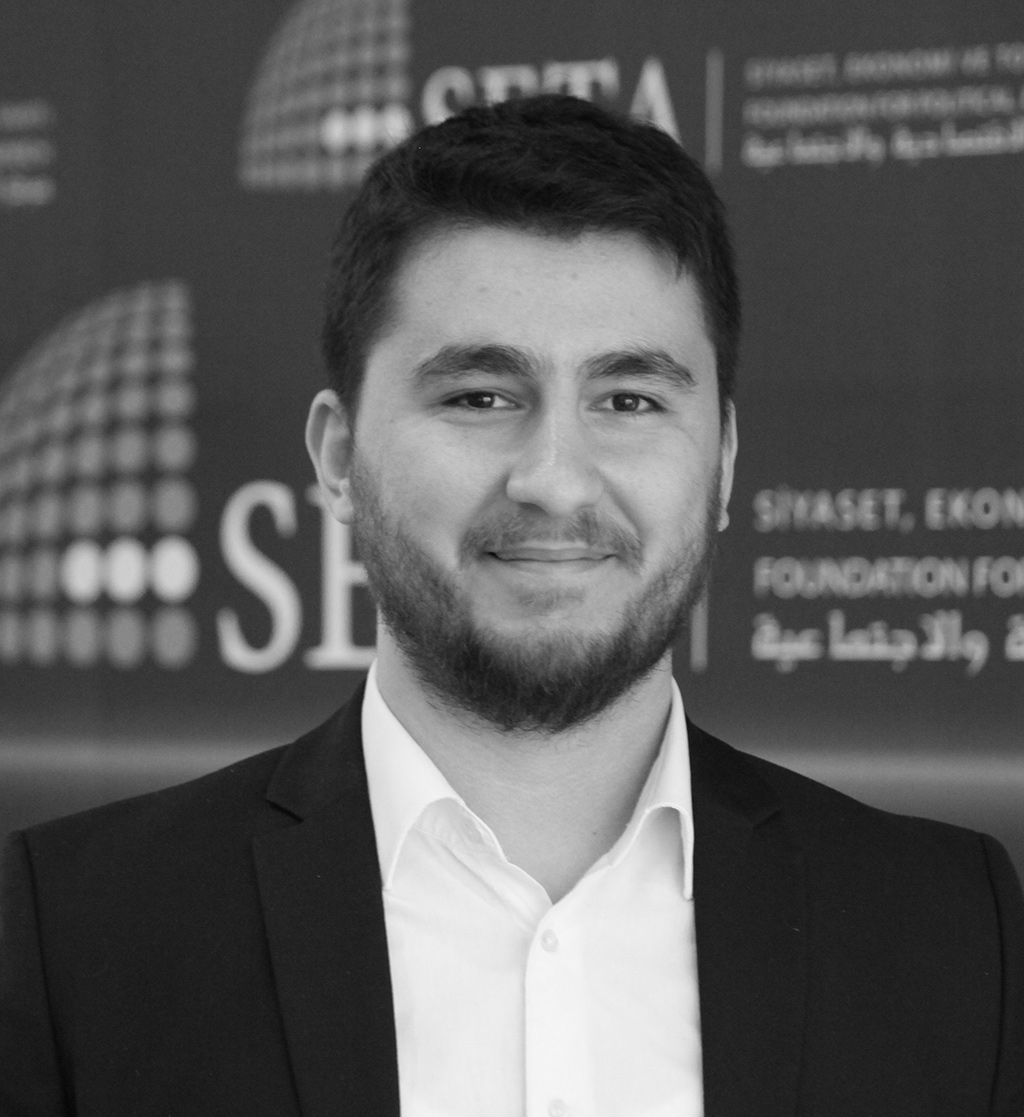
CENTCOM’s policies in Syria paving ground for more terrorism
With no Daesh-held territories left and McGurk, Votel gone, time for the US to seriously reassess the role of CENTCOM and its policies
Share
Since the Iraq invasion of the United States of America, the U.S. has committed several crimes and followed dubious policies in the region. The choices made in recent years by the U.S., especially those on Syria, were heavily influenced and operated by the U.S. Central Command (CENTCOM). A lack of resolution on the part of the White House has enabled CENTCOM to formulate its own policies and even attempt to legitimize a terrorist organization. In partnering with the Syrian branch of the PKK, CENTCOM has funneled $1,2 billion of U.S. taxpayer money to a Marxist organization, and during its fight against Daesh, it caused the deaths of thousands of civilians and the destruction of entire cities.
Without engaging in further criticism of the internal dynamics of U.S. politics, which would require an entire article, let us note upfront that CENTCOM has been acting pretty autonomously of late. While CENTCOM has fought off the threat posed by Daesh, the methods used in the process have inflicted huge damage on stability and security in Syria and the overall region, whose effects will last for a long time to come.
First of all, the media campaign and the partnership CENTCOM has formed on the ground have to be our main focus. Starting with Iraq, CENTCOM actively cooperated with the Hashdi Shabi militias and provided them with weapons and air support against Daesh. The same militias are under huge influence, trained and coordinated by the Iranian Revolutionary Guard Corps (IRGC), which is now listed as a “Foreign Terrorist Organization” by the U.S. The loyalty of most Hashdi Shabi militias is not to the Iraqi central government, but to the IRGC. In the Syrian case, CENTCOM has partnered with the Marxist YPG and actively took part in the formation of the Syrian Democratic Forces (SDF), which is dominated by the YPG while also comprising some Arab elements. The YPG is viewed as the Syrian affiliate of the PKK by the U.S. director of National Intelligence, the former U.S. Secretary of Defense Ashton Carter, U.S. Special Envoy for Syria James Jeffrey, who is also the special envoy to the Global Coalition To Defeat ISIS, Germany’s domestic intelligence service, Dutch Minister of Foreign Affairs Stef Blok as well as -- needless to say -- the Turkish state. British Ambassador to Ankara Sir Dominick Chilcott said that the UK “understands” the close links between the YPG and the PKK. In view of the substantial ties between the PKK and the YPG, let us recall at this point that the former is listed as a terrorist organization by the U.S., Turkey, the United Kingdom, China, Brazil, Switzerland, India, Egypt, Australia, Austria, Azerbaijan, Canada, Czech Republic, Germany, Iran, Japan, Kazakhstan, Kyrgyzstan, the Netherlands, New Zealand, Spain, Syria, the European Union and NATO.
Despite these obvious realities, CENTCOM has been actively promoting this terrorist organization. While CENTCOM argues that they are partnering with the SDF only and that the YPG is to be distinguished from the PKK, it has promoted the adoptive son of Abdullah Ocalan, the founder and long-time leader of the PKK, as a “legitimate” representative. Ferhat Abdi Sahin, adopted by Abdullah Ocalan and known in the PKK by its nom de guerre “Sahin Cilo”, once a senior terrorist in the Kandil Mountains, has emerged as “Mazlum Kobane” in Syria, the commander of chief of the SDF forces there. Ferhat Abdi Sahin has not only posed with CENTCOM officials, but is also their main contact in Syria according to the testimonies of Tariq Silo, a former spokesman of the SDF. In addition, Brett McGurk, the former Special Envoy to the Global Coalition To Defeat ISIS, gave a plaque to Polat Can, a Syrian PKK terrorist who translated Abdullah Ocalan’s books to promote his Marxists ideas. Other prominent senior PKK terrorists regarded as partners by CENTCOM are Asya Abdullah, Ayse Hiso, Sahoz Hasan, Nureddin Halef el-Muhammed, and Bahoz Erdal.
These promotion efforts of CENTCOM have gone so far that CENTCOM officials have even shown the temerity to promote certain social media accounts -- by retweeting their messages -- that consider Turkey as "a terrorist state". Many such accounts retweeted by CENTCOM officials are notorious propagandists for the PKK.
CENTCOM has logistically and financially supported the YPG-dominated SDF, and its aid to the group so far, in three years, has totaled $1.2 billion. In 2017, CENTCOM allocated $500 million, in 2018 $350 million, and for 2020, it is planning to deliver $350 more in aid to the group. According to the U.S.’ Counter-Islamic State of Iraq and Syria (ISIS) Train and Equip Fund (CTEF) program, the U.S. is set to train 65,000 militants and will be paying 10,000 of them a monthly stipend of $200 to $400. Additionally, CENTCOM officials seem to have identified themselves so strongly with their YPG partners that Gen. Joe Votel, the head of the US Central Command, felt “punched in the gut” by President Trump’s decision to withdraw the U.S. troops from Syria.
However, CENTCOM’s offenses are not limited to supporting a terrorist organization. Its air campaign against Daesh, for example, caused thousands of civilian causalities and destroyed entire cities, such as Raqqa. According to CENTCOM’s official press releases, Raqqa was bombed 6,153 times between January 2015 and March 2018, resulting in the destruction of 80 percent of Raqqa, as documented by Amnesty International, not to mention the killing of over a thousand civilians. At the end of the Raqqa campaign, the U.S. partners on the ground made a dirty deal with the encircled Daesh members and allowed them to be transferred out of Raqqa to then Daesh-held areas. Around 4,000 Daesh members were evacuated from the city right under the eyes of CENTCOM. Similar evacuation agreements with Daesh were made in Manbij and Tabqah as well. This debacle in Raqqa came after U.S. rejection to cooperate with Turkey and the Syrian opposition, and their conducting of the Raqqa operation with the YPG-dominated SDF. This decision by the U.S. administration was made following a briefing by CENTCOM that asserted that the option of partnering with Turkey and the Syrian opposition was not viable. CENTCOM, therefore, stifled cooperation between two NATO partners, prevented the Syrian opposition, which is composed mainly of Syrian Arabs, from taking part in the Raqqa campaign, and chose to work with a Marxist terror organization. This decision was the main culprit behind the catastrophic outcome in Raqqa, which remains a ghost town to this day.
Another important aspect of criticism towards CENTCOM is its role in misinforming and misguiding the U.S. public and U.S. taxpayers. On Feb. 17, 2018, SDF forces attacked U.S. Marine soldiers and wounded one, but this incident was swept under the carpet and it only became public due to investigative journalism.
U.S. and CENTCOM officials have tried to justify their Syrian policy by saying that they are thereby containing Iran and preventing the creation of a land route from Tehran to Damascus and Beirut. This justification is not only used to give additional explanation for the partnership with the SDF, but is also the main argument for the U.S. presence in the At-Tanf pocket. In reality, the U.S. involvement has not prevented the creation of a land route from Tehran to Damascus. Iran has a direct land route via the border crossing between Iraq and Syria at Al-Qaim and Abu Kamal. What the At-Tanf pocket did at best was to force Iran to use a new route that takes only four hours longer to reach Damascus.
CENTCOM has also hidden the relationship and cooperation between the YPG and Iran and the Assad regime. For instance, the U.S. public was not informed when Iran supplied the YPG in Afrin and sent some of its militias against Turkey and the Syrian opposition.
Lastly, CENTCOM played an important role in the framing of the YPG as the “Syrian Kurds”, which covers up their Marxist ideology and equates them with an entire ethnic group despite the fact that there are so many other Syrian Kurdish organizations in the region.
All in all, the offenses of CENTCOM are crucial and have had real impacts on the ground. CENTCOM’s policies have not only enabled the emergence of a terrorist organization, but also demonstrated how unreliable the terrorism designations of the U.S. can become, especially when U.S. institutions, such as CENTCOM, decide to partner with them. With no Daesh-held territories left and people like McGurk and Votel gone, it is time for the U.S. to seriously reassess the role of CENTCOM and its policies.
[AA, 22 April 2019]
Tags »
Related Articles






